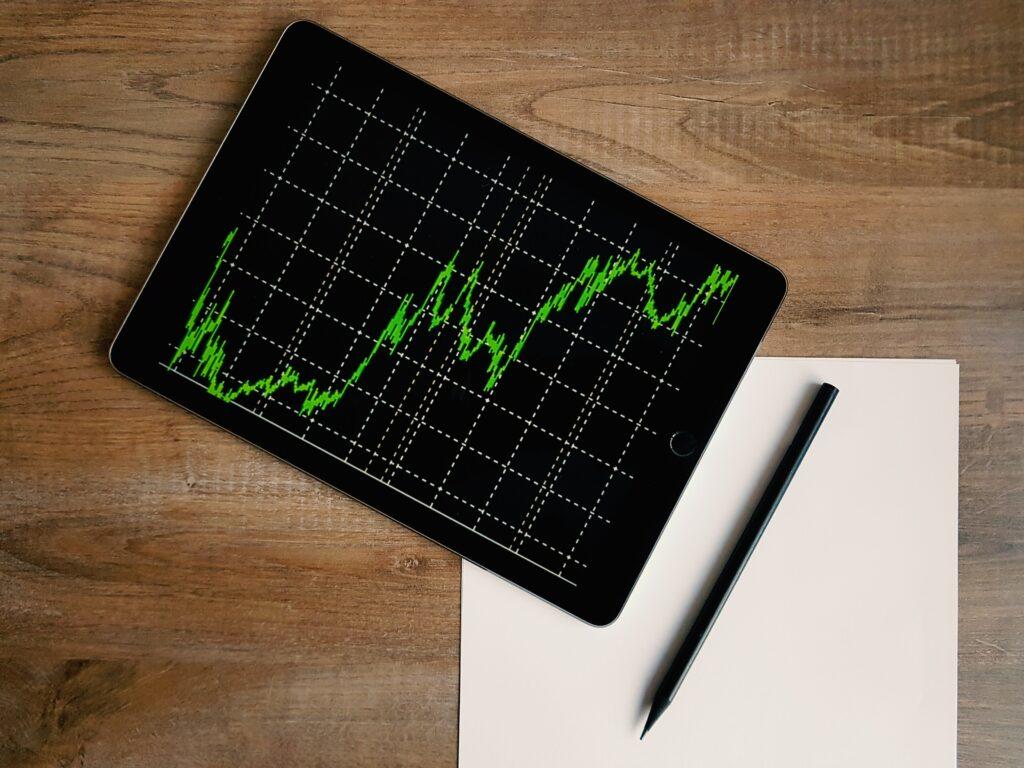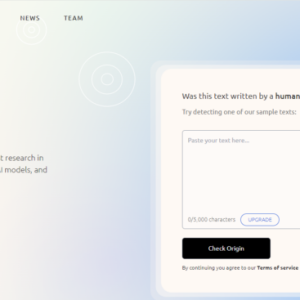ChatGPT has quickly gained popularity as an AI-powered chatbot that can engage in human-like conversations. This advanced language model has found its way into various industries, including trading and investment. With its ability to provide real-time insights and analysis, ChatGPT has become a valuable tool for traders and investors. However, as with any technology, there are limitations to consider. In this article, we will explore the six best practices for using ChatGPT in trading and investment, while also highlighting its limitations to help users make informed decisions when incorporating this AI chatbot into their strategies.
- GPTzero Review: Is it the Best AI Detection Tool?
- 10 Best GPT3 Tools To Boost Your Productivity: Both Free and Paid
- Crawlq Review: Can It Really Produce 100% Unique Personalized Content?
- From Podcasts to Blogs: The Best AI Tools for Podcasters
- What are the Best Article Generator Software Tools In The Marketplace?
ChatGPT has become one of the most talked about tools on the internet for content creation of all kinds, but that isn’t all that it can do. One of the most interesting ways that the platform is now being used is to implement trading strategies and make investment decisions. How can you utilize the power of ChatGPT for trading and investors?
You are viewing: ChatGPT for Trading and Investors: 6 Best Practices & Limitations of Using The AI Chatbot
While defining a new trading strategy for your portfolio can be helpful, it isn’t all smooth sailing. As much as it can give you insight into the market, ChatGPT is still limited in what it offers regarding up-to-date information.
Before you dive headfirst into using this tool for technical analysis, here is what you need to know about how it can help — and how it might hinder you.
Give General Knowledge to New Traders

If you’re new to the world of investments and want to make your money work for you, artificial intelligence can help you develop your own trading strategy.
Many new investors who are making their first decisions need help understanding the technical analysis of stocks, mutual funds, and ETFs. They may not know how to implement risk management strategies.
The good news is that ChatGPT can help with all of that.
Instead of combing the internet for how-to guides that may or may not answer your most pressing questions, artificial intelligence can give direct and customized answers to your queries.
That being said, you may not always get the most updated information from AI. It summarizes information that was made available to it prior to 2021.
While the language model developed a great resource for would-be traders, it’s important to note that it may give incorrect or irrelevant responses from time to time.
This is why it can still be beneficial to work with a financial expert who understands real-world financial markets. However, ChatGPT can give you some background information if you want to try out making investment decisions on your own.
Forecasting Stock Price Movements

As far as profitable trading strategies go, you typically try to predict the market data to see if you want to buy, sell, or hold your shares of a company.
Traditional trading strategies like this rely on technical analysis and a study of market trends to learn more about how things are likely to fare.
How can ChatGPT help with this, especially given that it isn’t connected to the internet?
It might take a little research on your part to get the AI tool up to speed, but it can be a great tool to forecast stock price movements in the coming days.
University of Florida finance professor Alejandro Lopez-Lira conducted his own research and experimented to see how ChatGPT’s machine learning model could predict stock movements.
After helping it to comb through the headlines, it was actually quite good at predicting the returns on the stock market the following day.
There is still some need to be cautious with utilizing ChatGPT as part of your trading strategy. The numbers that it spouts off may not be totally accurate, especially because it isn’t currently connected to the internet (more on that in a little bit).
However, ChatGPT’s natural language processing software can sometimes predict whether the headlines spell success or failure for a particular stock in the coming days.
Gather Data on Companies, Industries, and Competitors

Of course, ChatGPT for trading and investors is useful for more than just possible predictions of the next day’s stock market data.
See more : Best AI Content Generator? A Few Great Options and When You Should Use Them
If you are just getting started with traditional trading strategies, you can get a leg up with ChatGPT. This tool is great for newbie investors and seasoned traders who want to enter a new sector.
One way that you can assess a new trading strategy is by asking ChatGPT to comb through lengthy documents and summarize them on your behalf. For example, you can upload the quarterly report for a stock that you’re considering purchasing and ask for a summary.
You’ll get a neat little synopsis of the brand and how it’s doing before you make key investment decisions.
Of course, you can also use it for historical market data prior to 2021. If you’re looking at the overall market trends historically, then you’ll likely find that ChatGPT has a lot to offer.
It can create a summary of the trend, which you can then use to identify trading strategies.
It can also help you to get a grasp on an industry as a whole and on top competitors for the stock you’re considering.
This can give you insight into different trading strategies that might make sense for your portfolio. According to TechCrunch, it could provide valuable insights regarding market size or growth.
You could get the same information from Google, but it would be much faster to use the natural language processing tool.
Sentiment Analysis

In addition to technical analysis of a particular investment, there is also a need for sentiment analysis. Another term that gives more insight into what sentiment analysis truly means is “opinion mining.” In other words, what is the feeling behind an opinion piece?
While it may not be able to look at historical data for the past few years (yet), it can tell you a bit more about how the market “feels” about new data.
News articles aren’t the only thing that it can try to interpret for you either. You can also use its machine learning model to analyze less structured pieces of data like social media posts. This can give you insight into market trends for an industry or a specific stock.
Based just on the headlines, many researchers and finance experts are finding that the tool can make decent predictions as to how your trading strategy should be shaped by recent events and market sentiment.
Analyzing Market Data and Assets

Before you can dive into the right trading strategy for your portfolio, you need to do a lot of heavy lifting and research on market data.
While ChatGPT may offer inconsistent or unreliable information, it’s just as good of a stop as Google for this type of historical data.
Artificial intelligence can be used to find out more information about various aspects of a company, including:
- Business model and revenue generation
- More details about acquisitions
- Basic historical performance of the stock
- Patterns in the historical data for financial modeling
- Identifying competitors in an industry
When you need information for trading or investment purposes, then you might want to turn to trading with ChatGPT for training data.
It may not be able to tell you which companies will generate profits in the upcoming years, but it’s a great start for doing preliminary research.
Write Scripts for Trading Strategies

If you’re ready to make the leap into more technical indicators for buying and selling stocks, then it might be time to look into automated trading systems and algorithmic trading with ChatGPT.
One of the most advanced features of this tool, beyond its ability to predict market sentiment is that it can actually write scripts that execute trades automatically.
According to Market Rebellion, trading with ChatGPT is simplified with scripts like those for complex transactions like options trading.
You don’t need any advanced knowledge of Python programming, coding, or any other tech skills to generate profits this way.
See more : 10 Of The Best Product Description Generator Tools To Help Boost Your Sales
As long as you can define the algorithmic trading script that you want to execute, ChatGPT can go a long way toward helping you do it.
From here, you just need to find trading platforms that will allow you to enter script plugins into their interface.
While this isn’t a tool for beginners to get started quickly, it’s a great way to use ChatGPT for trading and investors who are looking for more serious trading opportunities, although it’s unlikely ChatGPT will replace programmers and developers anytime soon.
Limitations of ChatGPT for Trading and Investors

While there is a lot to be said about how ChatGPT can influence trading strategies, it isn’t all smooth sailing. There are plenty of limitations that could mean that it operates on inconsistent or unreliable data.
Let’s take a closer look before you move full-steam ahead trading with ChatGPT.
Not Connected to the Internet
Perhaps the most important thing to note here is that ChatGPT is not actively connected to the internet. The last time that it had internet access was back in 2021.
That means it has no access to updated information you would typically use to inform trading decisions. You’ll have difficulty performing a market analysis with this tool without inputting the data yourself.
That being said, this might change soon. New plugins will allow it to access trading performance and make it even more valuable for those who want to dabble in trying to conduct profitable trades.
Relies On You For News Headlines
As we mentioned when talking about market sentiment, you have to actually tell the tool what is going on in the news headlines.
Because it isn’t connected to the internet, it has a harder time determining what the stock market will likely do next. You must stay engaged with current events that could impact your trading portfolio.
More than that, you’ll have to continuously input new data into the AI tool to give it the most realistic picture before making investment decisions.
If you’re hoping to make trading decisions quickly, ChatGPT might actually slow you down.
Cannot Make Investment Decisions on Your Behalf
While it can write scripts for algorithmic trading, it’s important to note that ChatGPT does not actually make investment decisions.
It can perform sentiment analysis, let you know how things are likely to look in the immediate future and allow you to make your own call.
It is still entirely up to you what you decide to do with your portfolio.
ChatGPT for trading and investors is a great tool, but it must be used cautiously. Unless it’s running a script that you designed, proofed, and inputted into your trading platform, you won’t find that ChatGPT gets it all right without tremendous effort on your part.
Final Thoughts: ChatGPT for Trading and Investors
From dealing with risk management strategies to developing a signature trading strategy for your portfolio, ChatGPT has much to offer new and seasoned investors.
If you want to make investing more streamlined without spending hours wading through data, then this AI tool makes it easy.
Bear in mind that it still has its limitations though. From not being connected to the internet and its inability to make trading decisions on your behalf, you’ll find that it’s still a lot of work for you as an investor.
Why not give it a spin and see how it works out for you? You might be surprised at how much solid data you can get from the tool to make your trading strategy more profitable and robust.
For more information on what ChatGPT can do, see our other guides here:
- ChatGPT for Copywriting: 10 Easy Ways to Unlock Your Writing Potential
- ChatGPT for Sales: 7 Ways You Can Harness the Power of AI to Unlock New Opportunities
- ChatGPT for Real Estate: 8 Great Tactics to Increase Engagement and Sales
That concludes the article: ChatGPT for Trading and Investors: 6 Best Practices & Limitations of Using The AI Chatbot
I hope this article has provided you with valuable knowledge. If you find it useful, feel free to leave a comment and recommend our website!
Click here to read other interesting articles: AI
Source: newslength.com
#ChatGPT #Trading #Investors #Practices #Limitations #Chatbot
Source: https://newslength.com
Category: AI





